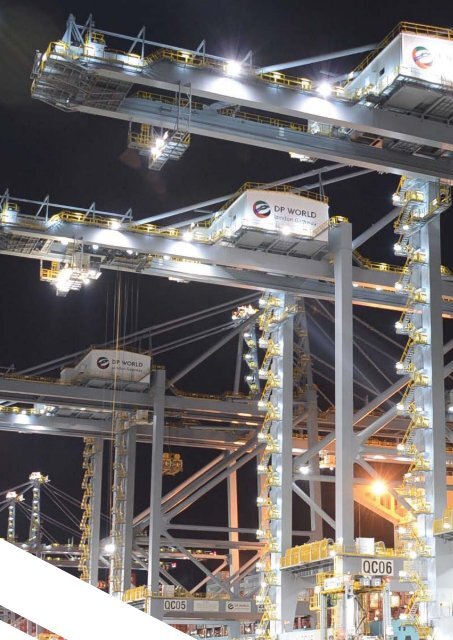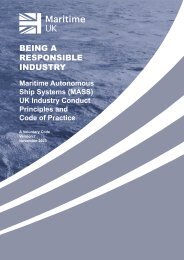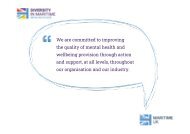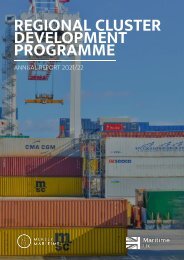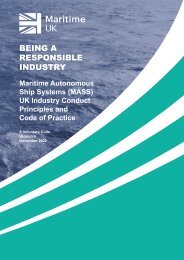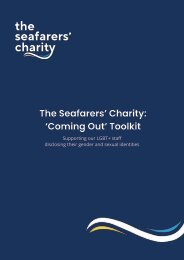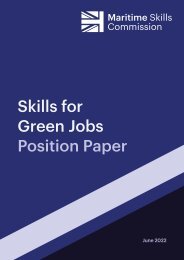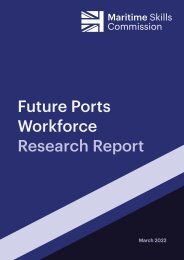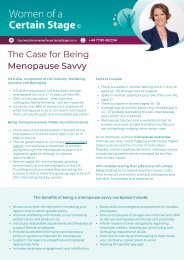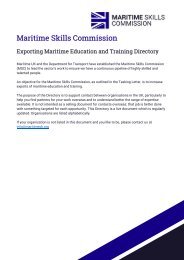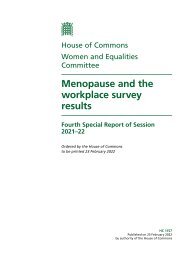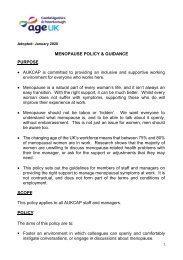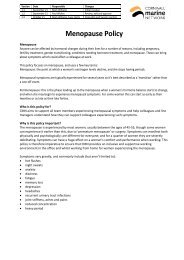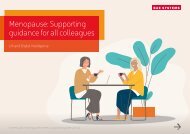Maritime Skills Commission - 2022 Annual Report
- No tags were found...
You also want an ePaper? Increase the reach of your titles
YUMPU automatically turns print PDFs into web optimized ePapers that Google loves.
<strong>Annual</strong> <strong>Report</strong> <strong>2022</strong> - 17<br />
Project<br />
Future Ports Workforce Research<br />
The modern port is a significantly different place to<br />
the port of history. It is increasingly shaped by forces<br />
such as globalisation of supply chains automation and<br />
digitisation. It is also shaped by external imperatives<br />
such as sustainability. We expect these trends to not<br />
only continue but to accelerate.<br />
desk research. Interviews occurred during 2021 and a small<br />
working Group made up <strong>Commission</strong>ers and HR Directors<br />
from the major ports group was formed.<br />
Current Situation<br />
This changing business and organisational environment has<br />
important implications for the people working in the sector<br />
– both today and tomorrow. Whilst there are important<br />
advantages in the future port workplace, such as safety<br />
and greater opportunities to deploy new sources of talent,<br />
and whilst some (perhaps many) future roles are currently<br />
unknown, there are undoubtedly substantial challenges to<br />
be addressed. This is not only in terms of staffing the future<br />
state, but also crucially in making the transition in a timely,<br />
efficient but also responsible manner.<br />
Achieving a better understanding of these dimensions,<br />
and the ways to address them is not a unique challenge to<br />
any one individual port operator (although the specifics of<br />
implementation inevitably will be).<br />
Background<br />
On Monday 28 March the report was launched<br />
at a dissemination webinar to share the report<br />
recommendations including:<br />
Clarify which body is leading on port skills<br />
More joint working within the ports and maritime<br />
sector to drive improvements in diversity<br />
Undertake a systematic review of how skills are<br />
used now, and anticipated changes in skills/job<br />
requirements in the future<br />
‘Eating the elephant’ a mouthful at a time – focused<br />
best practice sharing and ‘sprints’<br />
Investigate priority near-term skills gaps/shortages,<br />
including learning lessons from other sectors<br />
Develop more proactive approaches to upskilling,<br />
reskilling, and retraining the current workforce<br />
Working together to inform a better skills policy and<br />
funding landscape<br />
Developing the HR capability across the sector.<br />
The major port operators undertook a piece of research<br />
to explore the three interlinked key dimensions of change,<br />
the relationships between them and how potential solutions<br />
for how they might be addressed. The overall ‘exam<br />
question’ was ‘what do the likely future ports workforce and<br />
ways of working look like and how can the sector transition<br />
from the position today’.<br />
The full report can be found on the here<br />
The project commenced in late 2020 and the University of<br />
Strathclyde Business School were selected to undertake the


